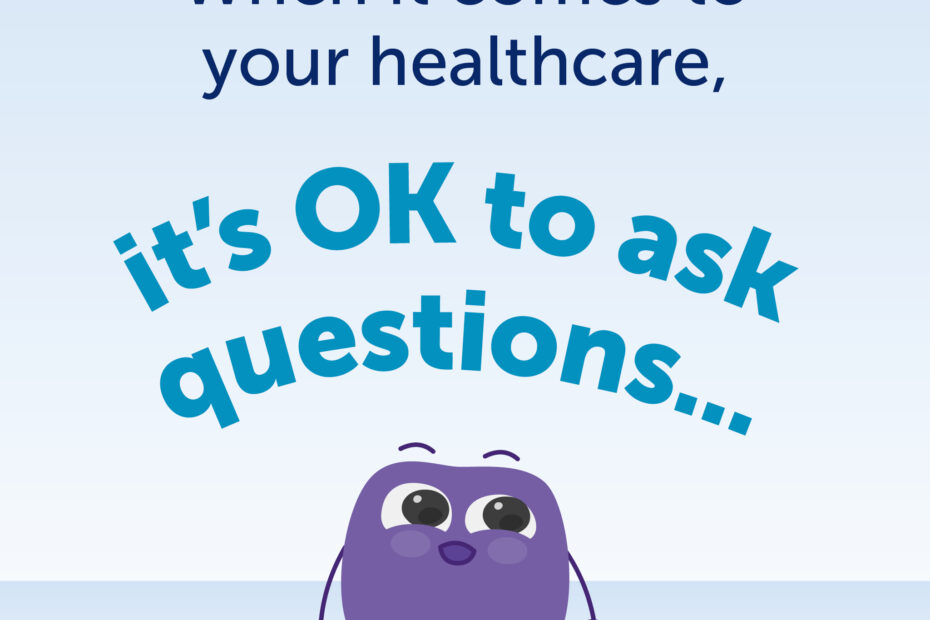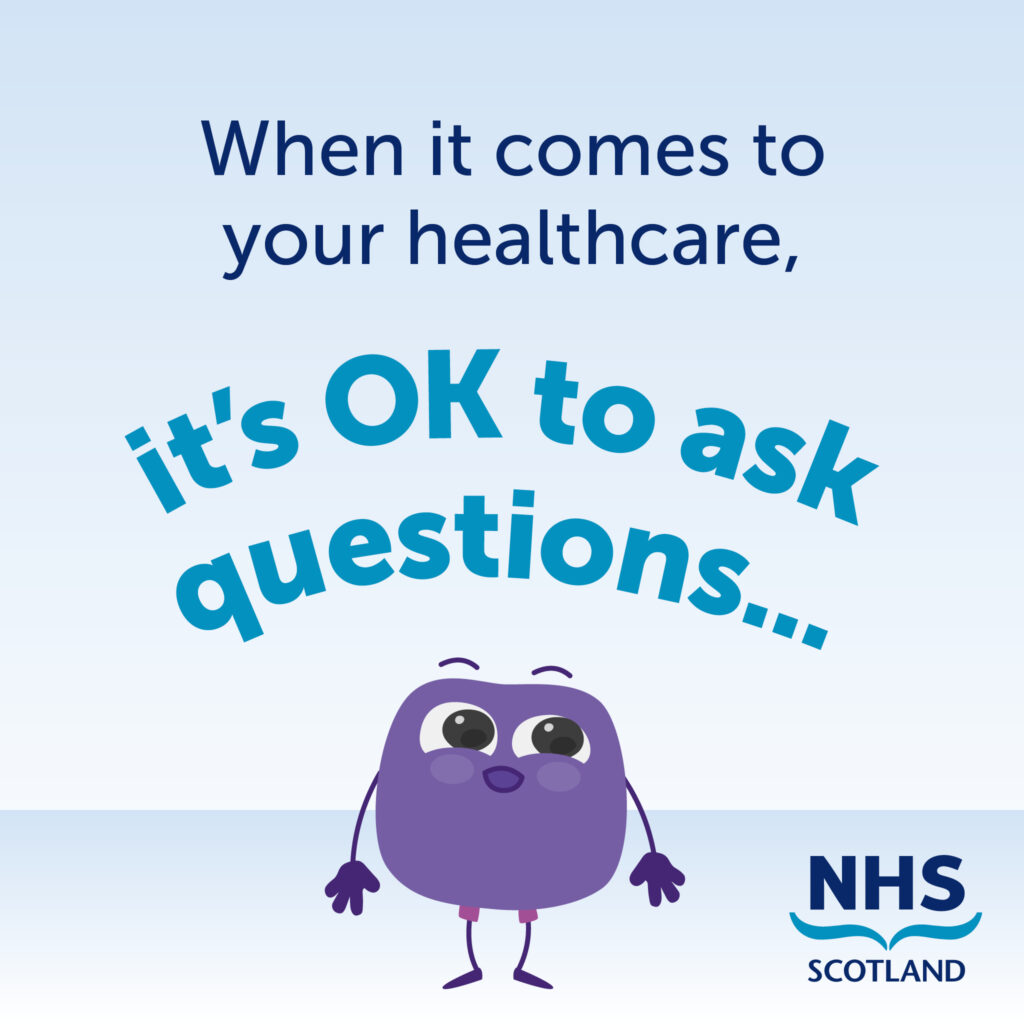
At NHS Greater Glasgow and Clyde, we embrace a Realistic Medicine approach to health and care, which focuses on personalised care. We can do this through shared decision making.
But what exactly is shared decision making, and how does it impact you?
Shared decision making empowers you and your family to actively participate in your care journey. It’s a partnership between you, your family, and healthcare professionals.
Whether you’re speaking to your dentist, GP, surgeon, or oncologist, they’ll communicate with you and together you can make informed health choices that are best for you.
Your Role in Shared Decision Making:
1. Share Your Story: Help us understand what is important to you, your family, or household to ensure you receive the right care and support based on your needs and what matters most to you.
2. Get Informed: Health professionals will provide you with all the information you need to make an informed decision about your care. This includes answers to your questions, which you’re encouraged to ask.
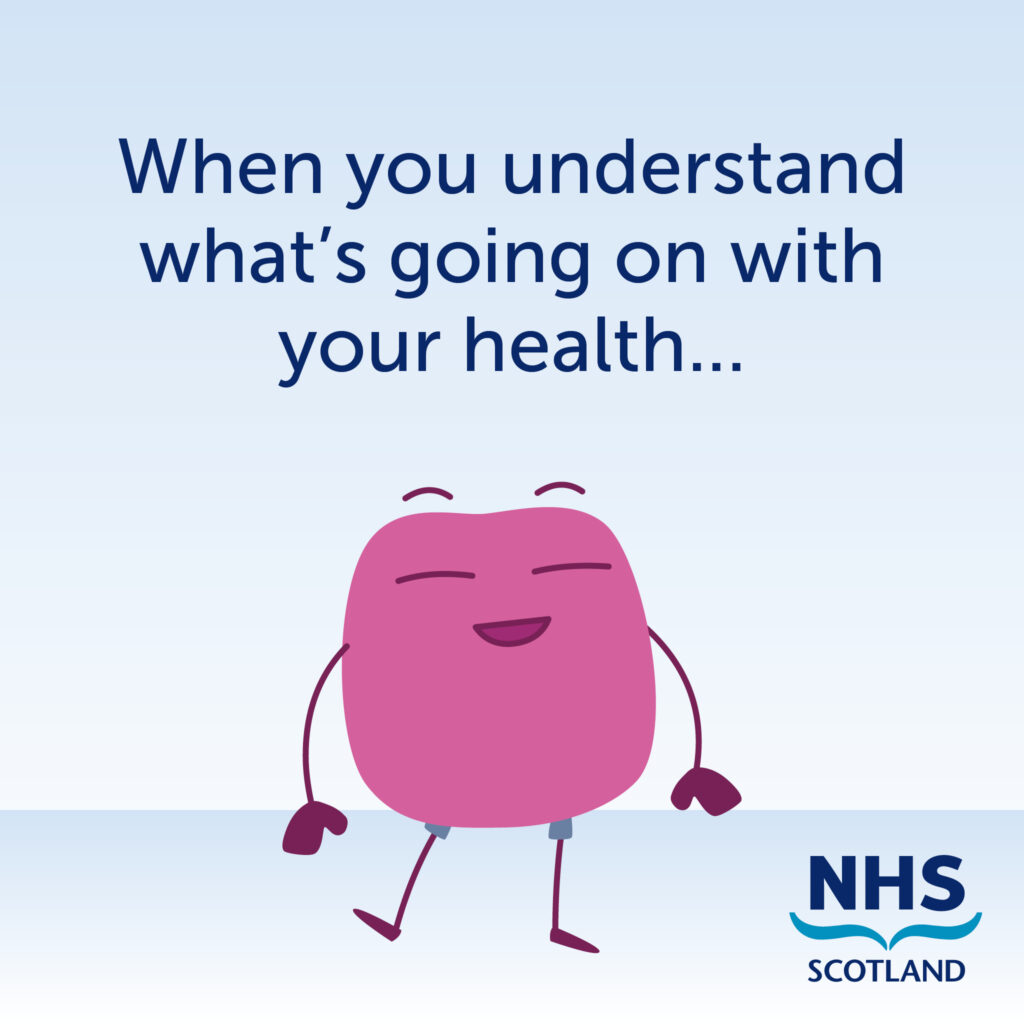
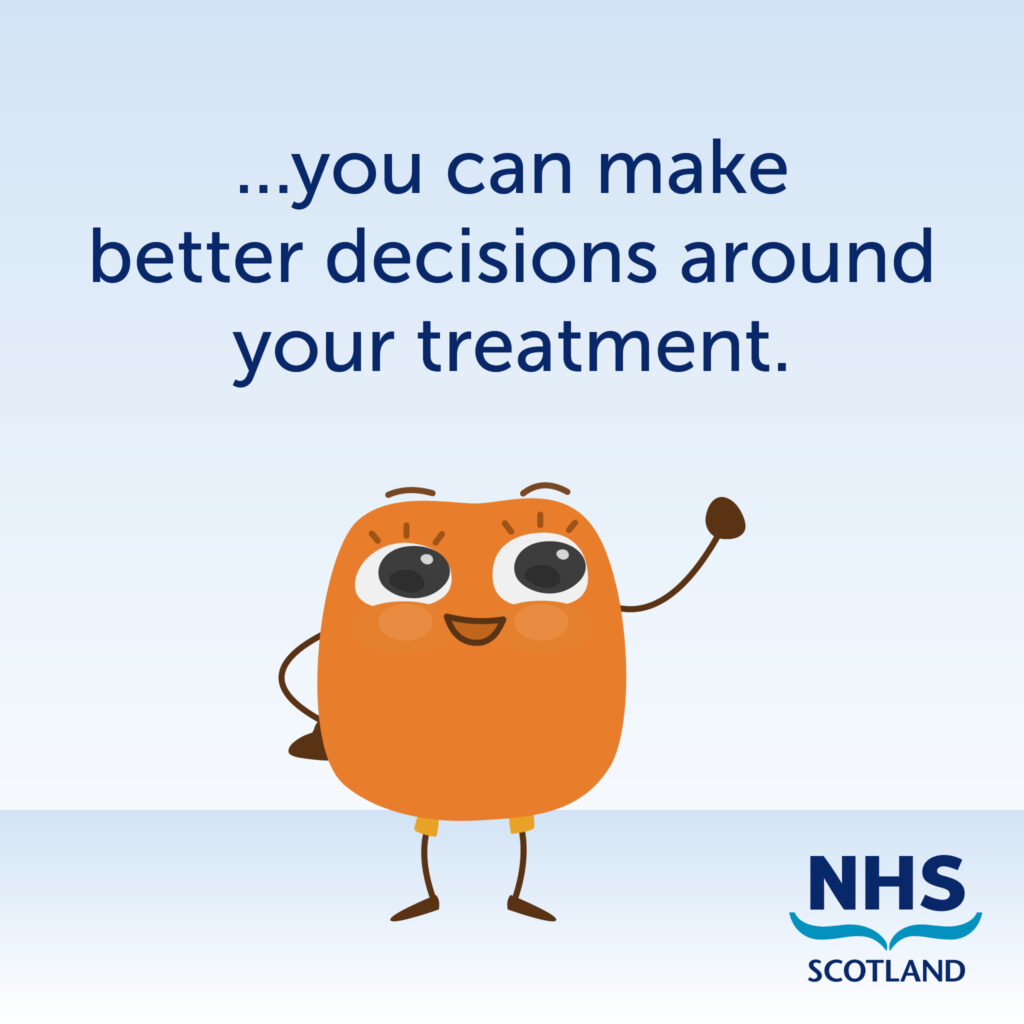
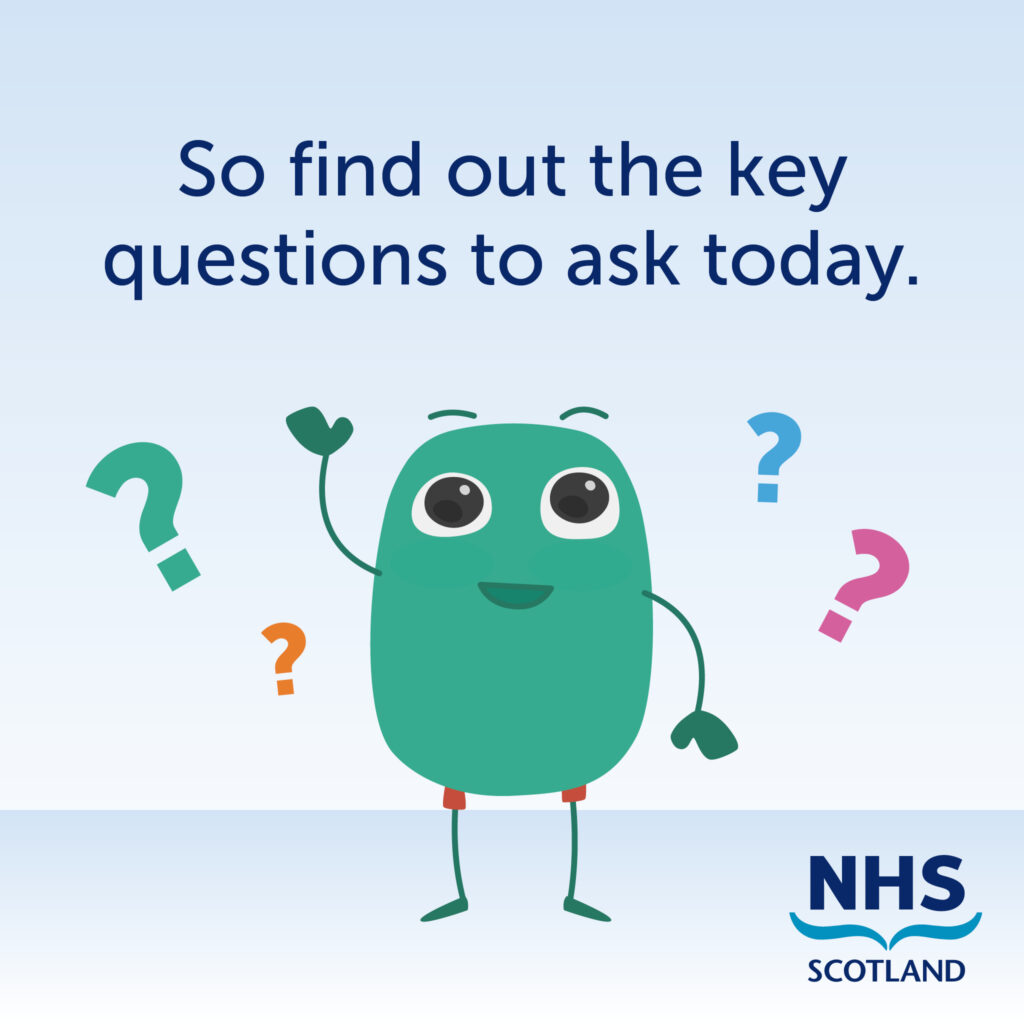
We encourage all patients to speak up at their appointments and ensure they know the answers to these four key questions:
· What are the BENEFITS of my treatment?
· What are the RISKS of my treatment?
· Are there any ALTERNATIVE treatments I could try?
· What if I do NOTHING?
Dr Jude Marshall, GP and NHSGGC Clinical Lead, emphasises the importance of understanding shared decision making. She says:
“Our teams are here to help you, and your family understand your treatment and care options. By understanding what and who matters to you, we can make better choices together.
“Asking questions about treatment options can be daunting, but it’s essential for understanding your care. Healthcare professionals welcome these questions and encourage patients to ask them during any discussions. We want you to feel informed, heard, and respected. Your voice matters, and your preferences shape your care.
“Remember, it’s okay to ask.”

